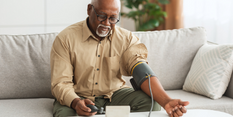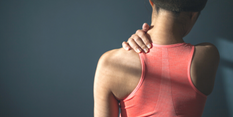Best remedies for period cramps: 7 effective variants
Astonishingly, nearly 3 in 4 women of reproductive age experience period cramping. Painful cramps that occur during your period, also known as primary dysmenorrhea, could bring your life to a halt for 1 or 2 days. But it doesn’t have to be this way; there are simple remedies you can adopt that will get you back on your feet in no time! Read on to find out what they are!
When women usually get cramps
Generally speaking, women can get cramps on two different occurrences in their menstrual cycle. The first incidence occurs during ovulation. This is rarer as many women do not experience cramps here, and it is increasingly milder in intensity.
Conversely, the second is commonly referred to as the usual painful period of cramping or dysmenorrhea. This occurs during the first few days of bleeding and is much more intense.
Why do you have cramps during periods
The physiology behind dysmenorrhea is explained as the contraction of the uterus as it sheds its inner walls.
The uterus thickens its inner walls throughout the menstrual cycle in preparation for pregnancy. When pregnancy does not occur, it needs to shed these walls.
Shedding is the bleeding that occurs, and the contractions are the source of pain. These contractions are felt as cramps in the lower abdomen extending to the back. They are intense at the beginning of the period due to the increased effort of the uterus to initiate the shedding process.

Heat therapy for period pain — does it really help?
The method is arguably the most commonly used by women to reduce period pains at home. It can be a hot bath, a hot water bag, or heating pads for period cramps.
This method is the most commonly used and recommended for a reason! It is extremely effective, quick, accessible, and convenient for most of those who swear by it. It requires very little effort compared to other methods and very few resources.
Why using a heating pad can help to reduce cramps
So we’ve established that the method works, but why does heat help with cramps anyway?
In simple terms, the heat helps reduce inflammation and improve blood flow to the area.
The contractions that occur in the uterus do so as a result of the release of inflammatory agents. The pain is ultimately and naturally reduced by reducing these agents and reducing the intensity of the contractions, thanks to the enhanced blood flow.
The duration of heat application differs from one person to another and also differs based on the temperature of your heat pack. The ideal temperature is 104-113°F (or 40-45°C).

What else can you do to get rid of menstrual pain?
The methods of alleviating period cramps are not one-size-fits-all. Skim through the following comprehensive list and find what works best for you:
1. Stay hydrated
Being dehydrated causes your muscles to cramp harder, which translates into more painful cramps for you. If you experience diarrhea and vomiting during your period, replenishing your body’s lost fluids is even more essential!
2. Don’t stress
Being stressed increases your cortisol levels, increasing muscle contractions in the uterus and making the pain much more intense. Try to relax because adequate rest and sleep while you’re on your period are exactly what you need.
3. Move move move
You may be tempted to stay in bed all day, but adding a little bit of activity can help alleviate the pain. You can do sports, do yoga, or even have sex or masturbate, as these exercises help release endorphins that reduce pain perception and improve circulation.
4. Let food be thy medicine
While it is common practice to binge on junk food while on your period, such a practice can do you more harm than good. Dairy, fatty foods, carbs, and fried foods cause bloating, making cramps much more painful. Indulge in leafy greens and nuts, as they reduce muscle tension and give you the nutrients and vitamins you need to power through. Avoiding alcohol and caffeine is also a must. Caffeine, in particular, narrows the blood vessels, reducing the blood reaching the uterus, which means more severe cramps. Moreover, herbs like ginger and curcumin and herbal teas like chamomile are anti-inflammatory by nature and help boost immunity and strength.
5. Massage your pain away
Massaging helps relax your muscles. Couple that with essential oils with pain-relief features, and you’re on your way to ultimate comfort. Acupuncture falls under this category as well for alleviating pain.
6. Pills are there for a reason
When all else fails, drugs like NSAIDs (ibuprofen/Advil) may help you tremendously. Add Tylenol to the mix, and you’ve got yourself a pain-relief potion. Birth control pills may also help some women regulate their cycles and experience less painful cramps. But before you go down the route of medications, consult your doctor, as these meds are not meant for everyone!

When is it time to see a doctor?
This is a tricky question to answer, requiring you to be the best judge of the situation. To help guide you in making this decision, consider the following parameters:
- Something doesn’t feel quite right
If you notice that your cramps are different from the usual ones you experience, this may sound some alarm bells. Perhaps they are more severe than regular cramps, and your go-to methods to help period pain aren’t cutting it. If your period is also considerably heavier than normal, you might want to discuss it with your doctor.
- The pain is immeasurable
While cramps are common, they really shouldn’t be painful to a debilitating point. If your dysmenorrhea makes you bedridden or needs prescription medications rather than over-the-counter medicines, then it’s time to schedule an appointment with your doctor.
- Pain beyond the uterus and back
If you are feeling sharp pains that extend beyond the usual lower stomach and back region, then it could be that your body is trying to tell you something! One of the most common issues that may have arisen is endometriosis, where tissues nearly identical to those of the inner walls of the uterus start accumulating in places other than the uterus. When uterus contracts, so do they.
From now on, keep period pain at bay!
That time of the month can truly be a nuisance. But now that you’re armed with all the right information about what to do and when to seek help, it really doesn’t have to be that inconvenient! Understanding yourself and your cycle a little more can truly get you far in maintaining your health, especially your menstrual health, and keeping the pesky period pains at bay!



